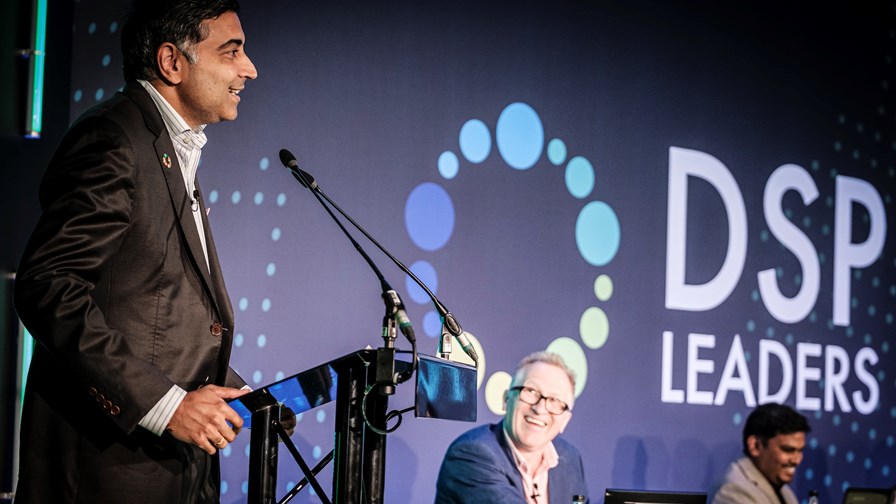
Telenor group CTO Amol Phadke cracks a joke during his opening address for the AI and network automation session at DSP Leaders World Forum 2024.
- As you would expect, AI was a hot topic at this year’s DSP Leaders World Forum
- The forum’s agenda included a session dedicated to automating the telco network with AI, which stimulated a lot of discussion about the impact on network operations
- Session co-host Amol Phadke, group CTO at Telenor, outlined three other key areas beyond the network that will hugely benefit from AI
- However, gaps in skills and in behavioural shifts need to be addressed if the industry is to succeed in the AI era
WINDSOR, UK – DSP Leaders World Forum 2024 – AI may be the tech term on everyone’s lips but what is it actually good for? As co-host of the ‘Enabling the autonomous network with AI’ session at this year’s forum, Telenor EVP and group CTO Amol Phadke (pictured above) used his opening address to highlight four key areas where the operator has identified substantial benefits from AI, but he also cautioned that creating use cases based on the technology would only make sense if the “knowledge gap” is addressed.
Phadke opened the session by shining the spotlight on several key considerations that telco players need to address when planning to include AI in their automation strategies.
The experienced CTO noted that while there are a “huge amount” of practical applications for AI that a telco can look into, it is not feasible to “attack all of that immediately”.
In terms of Telenor’s own experience, based on operations in each of its markets across the Nordics and Asia, Phadke explained that around 80% of the expected benefits from AI will be seen across customer service, marketing and sales, autonomous network and operations, and product, IT and software development.
In these areas, Telenor is already piloting as many as 250 use cases, of which 95% are about using AI and just 5% involve generative AI (GenAI).
Looking at the telco network, he admitted that Telenor has not yet fully identified which areas are likely to reap the greatest rewards from using AI, but he pinpointed four areas of interest: Network design, provisioning of the network, network assurance, and capacity planning/network optimisation.
However, the Telenor executive stressed that there is a significant challenge stemming from the knowledge gap the company is seeing across its employees – and indeed the telco industry as a whole. “At Telenor, we have 12,000 people and I would say only 10% of them are actually AI aware today,” said Phadke.
“There’s no point [in] us building thousands of use cases, [unless] our Telenor employees can actually use it,” he added.
The Telenor technology chief also emphasised the importance for ecosystem partnerships, as he claimed that with the AI era, “it’s a completely different ecosystem play” where an operator needs to build an ecosystem with five or six constituents in order to build a solution.
With that in mind, Phadke said he asks himself the same question every day: “How do you do an RFP [request for proposal] on AI? I struggle to understand how you would actually do a commercial negotiation because it's a completely different ecosystem play. You really need to build an ecosystem with five or six constituents to build a solution. And that's a very different mindset,” noted the Telenor executive.
Phadke addressed many other opportunities and challenges associated with the use of AI in his address and then discussed them with panel session speakers from Deutsche Telekom, Telefónica, Vodafone, Dell Technologies, Rakuten Mobile and the TM Forum. We will report further on the main discussion topics in a follow-up article: In the meantime you can watch the entire session here.
- Yanitsa Boyadzhieva, Deputy Editor, TelecomTV
Email Newsletters
Sign up to receive TelecomTV's top news and videos, plus exclusive subscriber-only content direct to your inbox.




